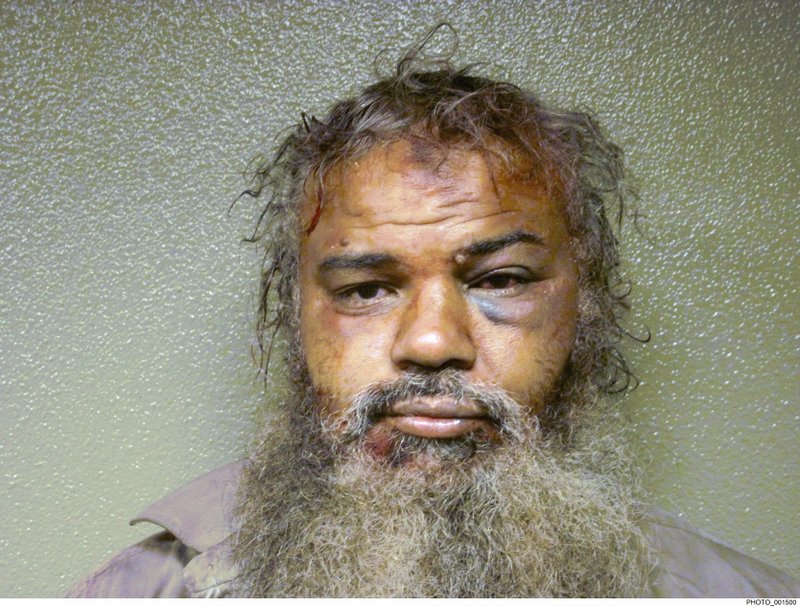WASHINGTON -- A Libyan militia leader convicted in the deadly 2012 Benghazi attack that killed a U.S. ambassador and three other Americans was sentenced to 22 years in prison Wednesday by a federal judge in Washington.
A jury in November acquitted Ahmed Abu Khattala, 47, of murder and attempted murder in the overnight attacks that began Sept. 11, 2012, on a U.S. diplomatic mission and nearby CIA post. But he was convicted on charges including conspiracy and providing material support to terrorists, and it was the extent of Abu Khattala's role as ringleader that U.S. District Judge Christopher "Casey" Cooper considered in sentencing him.
Legal analysts said the ability of the government to incapacitate Abu Khattala through a life sentence or its practical equivalent would influence decisions of whether to seek civilian prosecutions in similar cases in the future. Prosecutors had sought a life sentence; the defense sought 15 years. While some observers saw Cooper's judgment as a setback for prosecutors, he cast it otherwise.
"Even if you did not pour the gasoline or light the match, the evidence showed you were aware of the attack, and once the gates were breached, the likelihood someone would die was extremely high. This was not guilt by association," Cooper told Abu Khattala. "This case stands as an exemplar for the principle that a defendant accused of international terrorism can get a fair trial in the U.S. criminal justice system."
Federal prosecutors said Abu Khattala helped mastermind a terrorist strike abroad that resulted in the deaths of Ambassador Christopher Stevens and three others and that he deserved the maximum punishment.
"This fact alone, the first killing of a U.S. ambassador while in the performance of his duties in nearly 40 years, makes this case a truly singular event and warrants imposition of the maximum sentence permissible under the law," Assistant U.S. Attorney Michael DiLorenzo wrote in a sentencing recommendation by prosecutors.
The attacks also killed State Department employee Sean Smith -- who died with Stevens in a fire at a U.S. mission residence -- and CIA contractors Tyrone Woods and Glen Doherty, who died in a mortar attack as the assault shifted to a CIA annex in Benghazi.
Families of those killed, along with those wounded in the attack, submitted sealed statements to the judge, and Doherty's and Woods' families sat in the courtroom.
Woods' widow, Dorothy, addressed the court, asking the judge to impose a life sentence to send a "message clear and strong" to Americans fighting on the front lines against terrorism "that I got your [back]." She said the attacks left her asking what was next for her and the couple's 5-year-old son and wondering, "Will Ty have died for nothing?"
Abu Khattala's defense said jurors found him innocent in the killings of Stevens and Smith, arguing that they concluded that Abu Khattala joined the conspiracy at the mission after it was already was on fire, and that his "conduct did not lead to death."
The defense noted that they also acquitted Abu Khattala of all charges in the related attack hours later on the nearby CIA annex. A life sentence for property crimes "would completely disregard, and I would say denigrate, the work and service of the jury. ... It is clear that the jury in this case found that Mr. Abu Khattala didn't commit murder," said Jeffrey Robinson for attorneys with Federal Defender of the District A.J. Kramer and the law firm Lewis Baach Kaufmann Middlemiss.
The case was seen as a test of detention and interrogation policies developed under former President Barack Obama's administration to capture terrorism suspects overseas for criminal trial.
Abu Khattala was the first person convicted in the attacks. President Donald Trump's administration ordered the Oct. 29 capture of a second suspect, Mustafa al-Imam, who was taken to Washington and pleaded innocent. But the mixed Abu Khattala verdict showed the challenge of investigating and prosecuting such cases.
Abu Khattala was a leader of an extremist militia that sought to establish strict Islamist rule in Libya and oust the U.S. intelligence presence in Benghazi after Libyan dictator Moammar Gadhafi was overthrown. U.S. intelligence assessments have reported several groups were involved in the attacks, including Abu Khattala's brigade.
A Section on 06/28/2018
